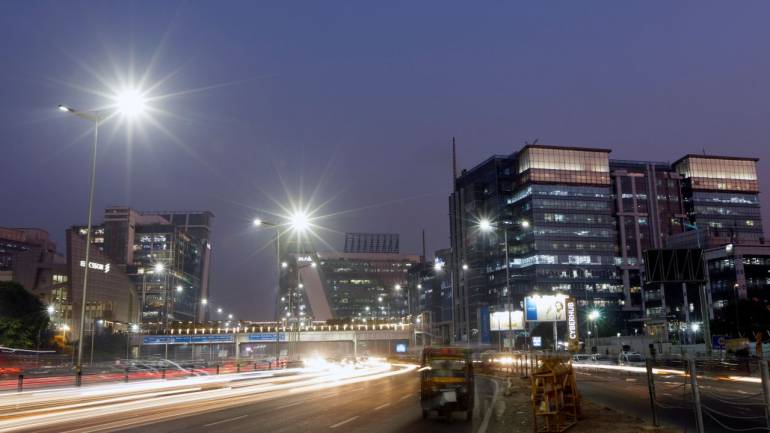The government must take proactive measures such as providing subsidised financing and tax breaks for corporates to pay salaries and compensate for loss caused due to government’s measures to tackle COVID-19
Vaibhav Kakkar and Sahil Arora
A 40-day lockdown has seen majority of industries and establishments having to shut shop with majority workforce staring at an uncertain future, causing the battle between ‘Jaan’ and ‘Jahan’ to take centre stage.
The Centre, in anticipation of a potential backlash against the lockdown, directed all employers to pay wages to their workers for the period of the lockdown, with landlords also directed to not demand rent from workers (Union Directions).
Regulatory Framework
The Union Directions have been issued under the Disaster Management Act. The authorities previously resorted to the century-old Epidemic Act, meant to tackle localised epidemics and not global pandemics. Given its limitation, the Centre has taken recourse to the Disaster Management Act, which gives it sweeping powers to not only prevent and manage the disaster, but to also reduce the impact of the disaster.
The Union Directions suggest that employers are obligated to pay only blue-collar workers under the lockdown. The directions mandate employers to ensure payment of ‘wages’ to their ‘workers’, as opposed to a requirement to pay all ‘employees’. This distinction matters under employment law, where ‘workers’ primarily mean blue-collar employees, and excludes employees in managerial, supervisory or administrative capacity. That said, some states have imposed specific directions regarding payment of white-collar employees as well. Unsurprisingly, employers are confused.
Grounds For Judicial Intervention
The financial burden without any government compensation has also put severe strain on the private sector and landlords alike; their revenue streams have halted with fixed costs unchanged. As anticipated, several corporations have taken a calculated decision to prefer ‘survival’ over potential consequences for non-compliance, and proceeded with salary reductions, leave without pay and layoffs, much to the anguish of the employees and the government. The Union Directions have also now been challenged before the Supreme Court, calling into question the legislative mandate behind it.
While the Disaster Management Act and the Epidemic Act gives wide powers, it does not contain any provision to specifically allow for imposition of such measures. Accordingly, to withstand the test of legality, the measures taken would need to be seen as within the confines of the parent legislation.
The courts would also consider that the imposition of these financial obligations on the private sector and landlords, without due compensation, appears to be aimed at addressing the economic impact of the lockdown. It may not be in furtherance of the objects of the Disaster Management Act and something which was envisaged by the lawmakers at the time of the enactment of the legislation.
As an economic redistribution of costs within the private sphere, the government directions could be excessive delegated legislation — much like the arguments being advanced in countries such as Italy. The measures could also be seen as violative of the private sector’s rights by being arbitrary and discriminatory by treating large corporations at par with SMEs.
What Next?
The authorities are, for now, deftly handling this delicate matter and engaging with erring employers to ensure compliance. However, with the directions limited to the period of lockdown and the private sector likely to feel the effects of the lockdown for several months, should the authorities initiate proceedings for non-compliance or impose any continuing obligations on employers, we may see private players actively approaching the judiciary for relief.
The government would hope that its noble intentions will outweigh the unintended impact of these measures. One can sympathise with the government’s predicament, with continuous payment to employees also a necessity, especially in these times. However, private players cannot be made to shoulder the entire burden. While the government has taken several measures to ease the compliance burden and loan repayment obligations, to ensure the survival of private players, the government must take proactive measures such as providing subsidised financing and tax breaks for corporates to pay salaries, and much like the United States, compensate for loss caused due to government’s measures to tackle COVID-19.
With the plight of blue-collar employees being of most concern, a possible middle ground could be for the states that have issued directions to cover white collar employees as well, to take a step back, and only require for the Union Directions that covers blue-collar employees to be complied with. At most, one can look at protection of white-collar employees below a salary threshold. It must be remembered — the only sure way of ensuring continued salaries and massive lay-offs is for private players to remain afloat.
Vaibhav Kakkar is Partner, and Sahil Arora is Senior Associate, at L&L Partners, Delhi. Views are personal.First Anniversary Offer: Subscribe to Moneycontrol PRO’s annual plan for ₹1/- per day for the first year and claim exclusive benefits worth ₹20,000. Coupon code: PRO365











